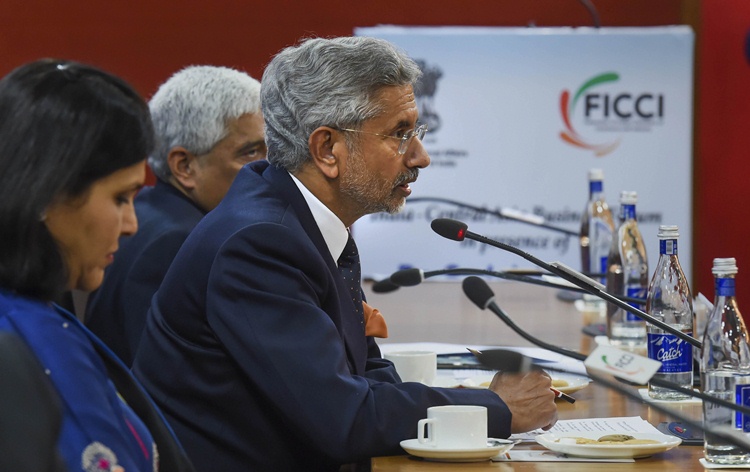The tirades launched against China in the past few days by External Affairs Minister S Jaishankar and Chief of Defence Staff, General Bipin Rawat are an admission by the government that Chinese aggressive posturing along the Line of Actual Control (LAC) in Ladakh has indeed reached a critical stage. This is contrary to the denial mode the Narendra Modi government has preferred to retain. In fact, the responses by Jaishankar and Rawat come across as pathetic pleas to contain China. It betrayed nervousness when Jaishankar said at a FICCI programme that “the events” along the LAC in eastern Lakadh are “very disturbing” and that what has happened there is not in China’s interest. It smacks of puerile foreign policy to decide for China what is “in its interest” or what is not. China knows its own interests better than anyone else and it has been pursuing them along Indian borders with shrewdness mixing aggression with its strategic-economic-diplomatic maneuverings bringing into its orbit Pakistan, Nepal and even Bhutan. India under the BJP-led government has all this while been sleeping, neglecting the neighbours. It has turned the heat exclusively on Pakistan as its main foreign policy plank to tailor it to its domestic-electoral politics of communal divide.
Jaishankar complained at the FICCI programme that these events have raised some very “basic concerns” as the “other party” has not abided by agreements on respecting the LAC. Two days back, he had told the Australian think tank, Lowy Institute, during an interview that China had been equivocating on the issue. Immediately thereafter, the Chinese foreign office spokesperson Hua Chunying retorted that it was India which had violated bilateral agreements. Her categorical response was that the merit of the situation at the border area is very clear and the responsibility totally lies with the Indian side. According to her, China has been strictly observing the agreements signed between the two sides and is committed to resolving the border issue through dialogue and safeguarding regional peace.
Jaishankar was candid enough to admit that the real danger is that the goodwill which was so carefully developed will dissipate. But he also said that India is being tested and will meet the national security challenge. India’s foreign minister’s claim that goodwill had been developed probably refers to events such as Xi Jinping and PM Modi sitting on a swing at Ahmedabad or walking on the beach at Mahabalipuram. These kinds of bonhomie do not hold any meaning in a brutal world of diplomacy. Jaishankar’s claim was probably intended to please the powers that be but as a career diplomat, he must be aware that his mouth speaks where his heart does not agree.
In another summit on December 10, Rawat urged like-minded countries to build dissuasive deterrence against China’s attempts to establish hegemony in the Indo-Pacific region. The irony is when India is looking for strategic partners to take on China, the latter has gone ahead with mobilising hundreds of thousands of soldiers along the LAC and positioned its other military and non-military wherewithal along Indian borders. Not only military, China’s hostile policy towards India is dictated by its ambitious economic agenda of One Belt One Road (OBOR) initiative that links Pakistan and many other countries in India’s neighbourhood. China has remained steadfast in its global as well as neighbourhood policies. Its aggressiveness towards India, both militarily as well as economically, has not altered during the past few decades. What has changed is the image India has been demonstrating to the world lately. India, projecting an image of a divided society within and a foreign policy blueprint that only depends on personal rapport and pats on the back of PM Modi, has lost out on all initiatives. Individual to individual relations do not hold any significance in a diplomatic whirl where power struggles between nations, especially after CoVID-19 related economic debacles, are taking huge tolls.
